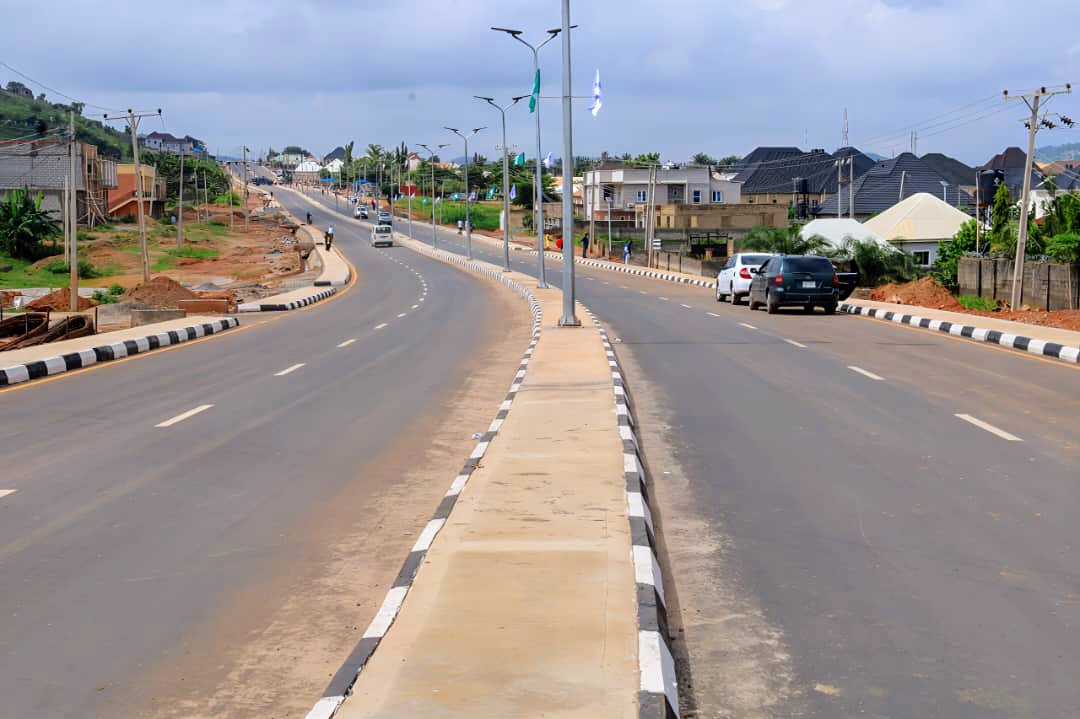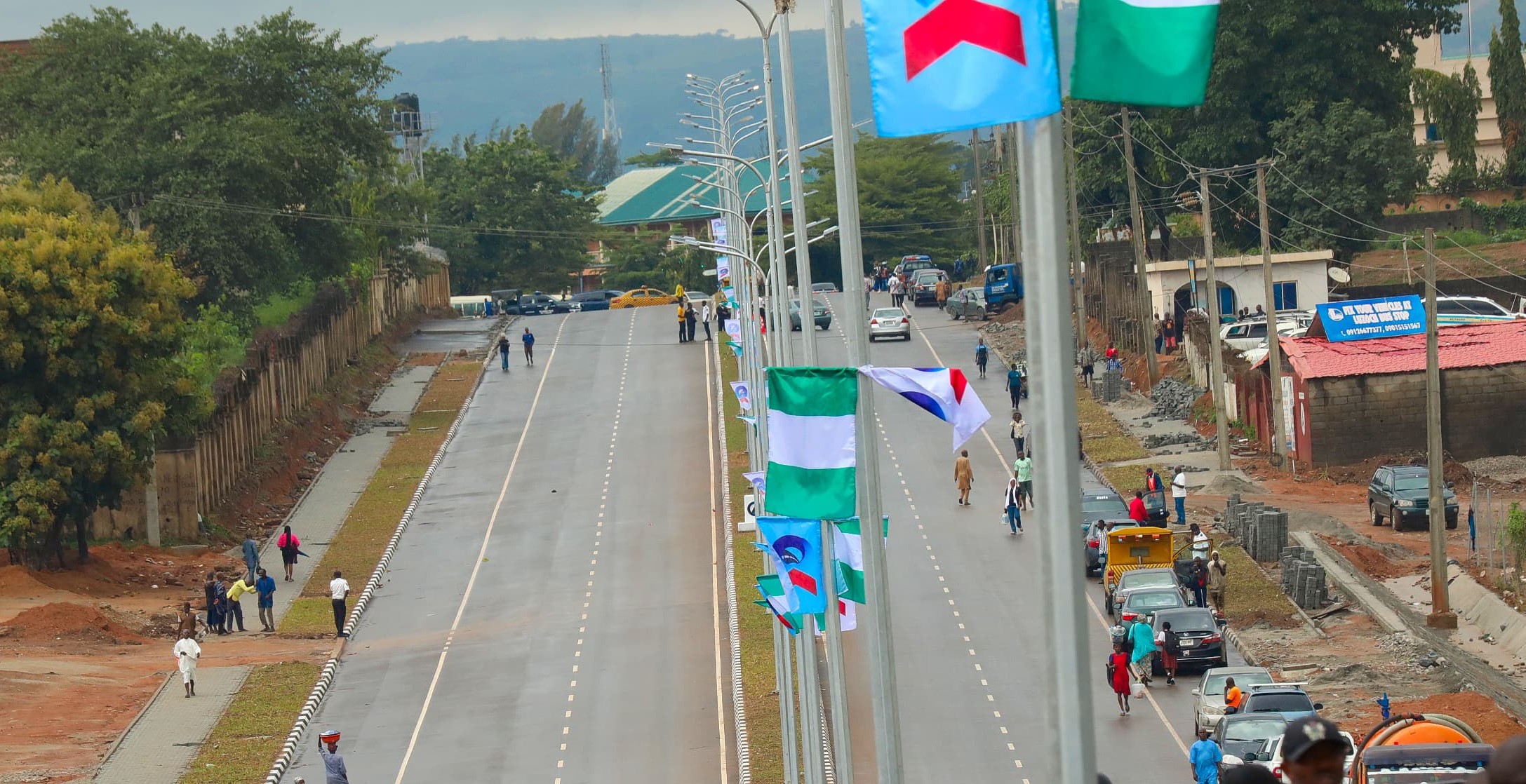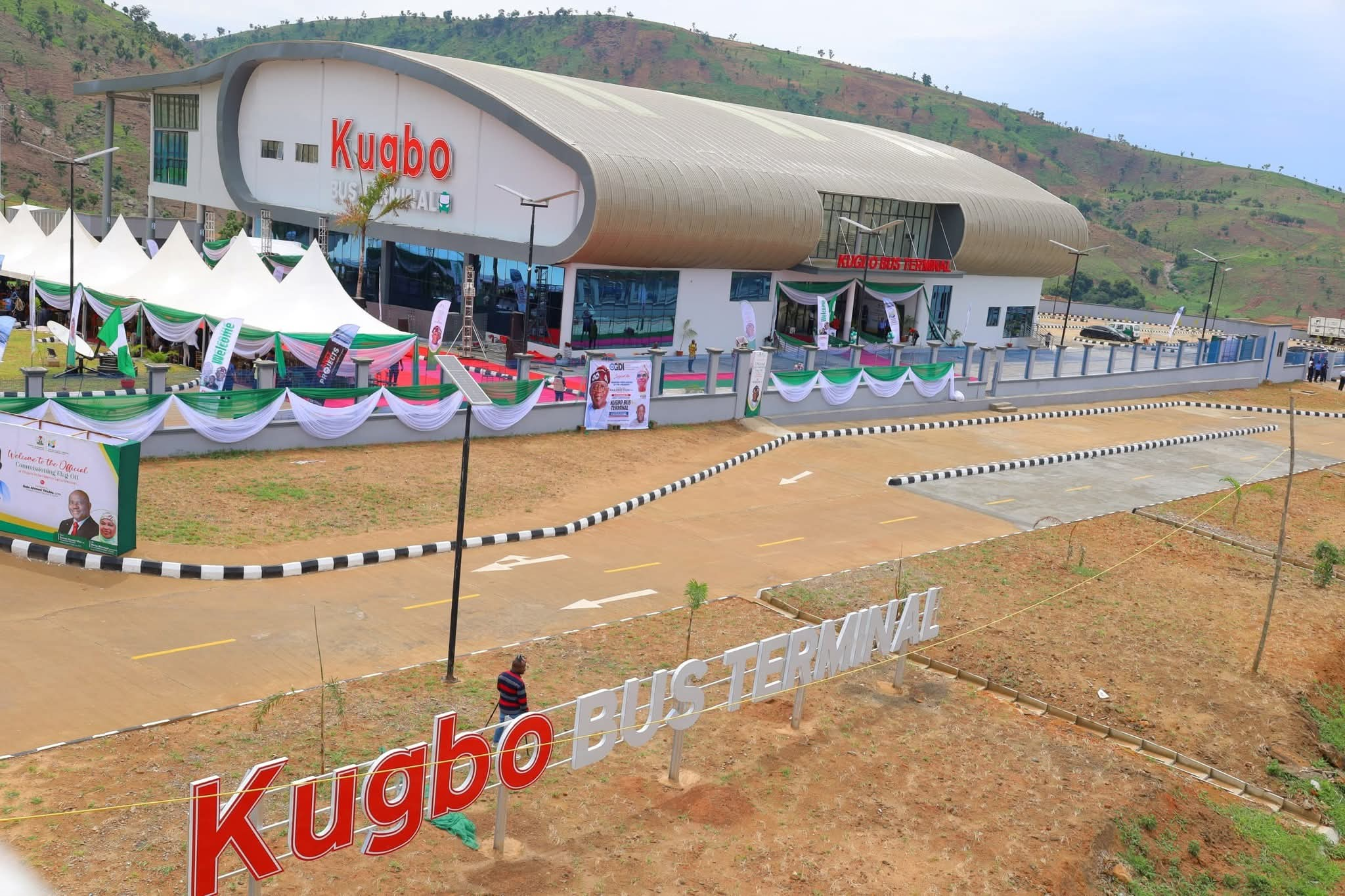Days of empty promises, abandoned projects over in FCT – Tinubu
By Philip Yatai and Uche Bibilari
President Bola Tinubu says the days of empty promises and abandoned projects in the Federal Capital Territory (FCT) and other parts of the country are over.
Tinubu stated this in Abuja on Friday, while inaugurating the newly rehabilitated Aguma Palace, Radio Nigeria, New Market Road and other connecting roads in Gwagwalada.
The project was the 17th, inaugurated by Tinubu to celebrate his second year in office.
Represented by Vice President Kashim Shettima, the president assured Nigerians that no community under his administration was too far to be seen, and no voice too faint to be heard.
He added that his administration was steadily bridging the gap between promise and performance.
He said that the projects being unveiled in the FCT were not imposed from above but nominated by the people of Gwagwalada themselves.
“This is the kind of democracy we believe in; one that listens, one that responds, and one that delivers.
“The road is a corridor of dignity for the market women, a path to safety for our school children, and a road to prosperity for the hard-working trader.
“We are not just building infrastructure; we are building confidence and governance.
“For too long, those who lived beyond the city centre have watched development happen from a distance.
“They have watched their dreams of inclusion delayed by excuses, and their hopes defied by shifting priorities; we are here to rewrite that history,” he said.
Tinubu said that his government was not just rehabilitating roads but rehabilitating trust.
According to him, the transformation unfolding across the FCT is the product of deliberate reforms and the bold reform-oriented policies of this administration.
“By expanding the revenue base of the FCT, we are investing in roads, schools, hospitals, and people.
“The newly rehabilitated Aguma Palace, Radio Nigeria, and New Market Road is a lifeline to the communities it connects.
“From rehabilitated healthcare centres to improved learning environments for our children, from safer roads to a more responsible public service, the FCT is undergoing a quiet revolution.”
He said that the revolution was made possible by people like the FCT Minister Nyesom Wike, who refused to accept mediocrity.
Describing Wike as the most colourful politician in the Nigerian political landscape, the president thanked the minister for his accomplishments so far.
Tinubu reiterated his administration’s commitment to projects that speak directly to the lives of the people.
“We are focused on creating an enabling environment for businesses to grow, for families to thrive, and for communities to prosper.
“We are determined to ensure that development is not a privilege reserved for the few, but a right enjoyed by all,” he added.
In his remarks, Wike said that the 10-kilometre road was nominated by the residents of Gwagwalada, including the 9.5km Paikon-Kore Road, constructed and inaugurated in 2024.
“One good thing about the projects in rural areas is that, we never sat in the city and said, go and do so, so, road.
“We came here and the people said, this is what we want. This is what we call community participation in governance.
“The day we came here for the flag off of this project was the day I knew the importance of these roads to the residents of Gwagwalada. The road had completely collapsed and the people were suffering,” he said.
Acknowledging the excitement on the faces of Gwagwalada residents, the minister commended Tinubu for supporting the FCT Administration to deliver life-impacting projects in satellite towns.
The FCT Minister of State, Dr Mariya Mahmoud, described the various projects inaugurated by Tinubu in the last 16 days “as enablers of economic growth, social harmony, and improved quality of life”.
“The inauguration of this road is a demonstration of our dedication to inclusive governance and infrastructure renewal in both urban and rural communities,” Mahmoud said.
Earlier, Mr Abdulkadir Zulkiflu, the Coordinator of the FCT Satellite Towns Development Department (STDD), said that the project was awarded in September 2024 to a local contractor.
Zulkiflu added that the completion and inauguration of the road marks a significant advancement in the FCT’s efforts to improve infrastructure in satellite towns and area councils, which reflect Tinubu’s “Renewed Hope Agender”.
He thanked Wike for the trust placed on STDD to manage and oversee the execution of the project. (NAN)
Edited by Sadiya Hamza















